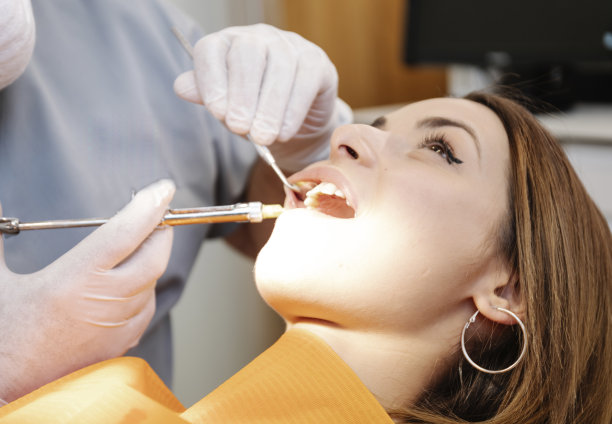Summary: Dental fillings are essential for restoring decayed teeth, and understanding the preparation and care involved can significantly enhance the procedures success and longevity. This article outlines essential guidelines and precautions for dental fillings, focusing on patient preparation, post-operative care, routine oral hygiene practices, and choosing the right dental professional. By adhering to these guidelines, patients can ensure optimal outcomes and maintain their overall oral health.
1. Patient Preparation Before the Procedure

Preparing for a dental filling involves several key steps that can ease the experience. First, it is crucial to communicate any concerns or anxieties to your dentist before the appointment. Understanding the procedure can alleviate fears and provide a clearer picture of what to expect during the filling process. A supportive dental environment can enhance patient comfort significantly.
Secondly, discussing medical history is vital. Informing the dentist about conditions, allergies, or medications can help customize the treatment approach. This precaution ensures that the dentist can select the most suitable materials and techniques, minimizing risks and enhancing the fillings effectiveness.
Finally, consider dietary choices before the appointment. Avoiding hard or sticky foods can prevent aggravation of dental issues. Arriving at the dental office well-nourished yet not overly full can lead to a more comfortable experience during the procedure.
2. Post-Operative Care Essentials
Post-operative care is imperative for a successful recovery after a dental filling. Initially, patients should avoid eating for at least two hours after the procedure, especially if anesthesia was used. This precaution helps prevent accidental biting of the tongue or cheeks and allows the filling to set properly.
Moreover, managing discomfort should be prioritized. Over-the-counter pain medications may be recommended by the dentist to help control any discomfort after the anesthetic wears off. Patients should follow the dosage instructions carefully to ensure effective pain management without adverse effects.
Another essential aspect is monitoring for potential complications. If symptoms such as extreme pain, swelling, or unusual sensitivity persist beyond a few days, patients should promptly consult their dentist. Recognizing these signs early can prevent complications and facilitate timely interventions.
3. Routine Oral Hygiene Practices
Maintaining a diligent oral hygiene routine is crucial after getting dental fillings to ensure their longevity. Brushing teeth at least twice a day with fluoride toothpaste helps to remove plaque and food debris, reducing the risk of secondary decay around the filling. Special attention should be paid to the area of the filling to ensure thorough cleaning.
Flossing is equally important in a post-filling care routine. This practice helps maintain gum health and removes debris that brushing may miss, especially near the filling. Flossing should be conducted gently to avoid dislodging the filling while still being thorough in cleaning the surrounding areas.
Regular dental check-ups are a non-negotiable part of oral health maintenance. Having a dental professional examine your teeth routinely allows for the early detection of any potential issues with fillings or surrounding teeth. Professional cleanings also contribute to maintaining your overall dental health.
4. Choosing the Right Dental Professional
Selecting a qualified and experienced dentist is critical for successful dental filling procedures. It is advisable to check the dentists credentials, patient reviews, and overall reputation in the community. A dentist who is skilled in restorative dentistry can enhance the outcome of your dental fillings and boost your overall dental experience.
Moreover, it helps to engage in open communication with the dentist. Discussing the types of materials they use and the techniques applied can give insight into the expected results. A good dentist will also readily address any questions or concerns regarding the procedure.
Lastly, consider the dental offices environment and staff. An inviting, professional ambiance with friendly staff can significantly enhance the overall patient experience. Comfort and ease of communication play a pivotal role in reducing anxiety and making dental visits more pleasant.
Summary:
In conclusion, ensuring a successful dental filling procedure and maintaining optimal oral health requires comprehensive preparation and post-procedure care. By focusing on patient preparation, effective post-operative care, diligent oral hygiene practices, and choosing the right dental professional, individuals can secure not only the immediate success of their dental fillings but also their long-term oral health.
This article is compiled by Vickong Dental and the content is for reference only.
Vickong Dental
Vickong Dental is a large medical group established in Hong Kong in 2008 by professors from well-known medical universities in Guangdong and Hong Kong, as well as medical doctors from key national '985' universities (including Master's supervisors and senior professors). The chain of branches brings together expert dentists with PhDs and Master's degrees from Hong Kong and Mainland China, committed to providing high-quality dental treatment.
"Vickong Dental Practices the University Motto of 'Healing and Serving Society,' with a Stable Operation for Sixteen Years. It Has Been honored with Hong Kong Enterprise Leaders's Choice,' and is a Global Trusted Implant Center for the Nobel Implant System. Recommended by Hong Kong Metro Broadcast and Guangdong Television, it Serves Customers from Over Thirty Countries and Regions, Gaining the Trust and Favor of Citizens from the Guangdong-Hong Kong-Macau Greater Bay Area and Surrounding Cities.

Thousands of customers' unanimous praise
The most recognized and highly recommended dental service by customers in the Guangdong-Hong Kong-Macau Greater Bay Area
We Ensure You Receive Detailed Care and Attention Here
Hong Kong standards, Shenzhen prices, Your Trusted English-speaking dentists

Vickong Dental Medical-Grade Instrument Disinfection Process
Vickong Dental Medical-Grade Instrument Disinfection Process

Vickong Dental Chain: A Warm and Comfortable Environment for Treatment






Appointment Hours

Q&A
Why choose Vickong Dental?
Vickong Dental practices the university motto 「Medicine to Benefit Society」, with each branch bringing together highly qualified dentists with doctoral and master’s degrees from Hong Kong and the Mainland, and has maintained seventeen years of steady operation。Recipient of 「2024 Hong Kong Enterprise Leaders Brand」, 「2025 Hong Kong Enterprise Leaders Brand」, a Nobel Biocare Global Trusted Implant Center, and a brand recommended by Metro Radio Hong Kong and Guangdong TV。
To date, we have served customers from more than thirty countries and regions,earning exceptionally high word-of-mouth recognition and trusted recommendations from residents across the Guangdong-Hong Kong-Macao Greater Bay Area and surrounding cities
We have eight major branches in Zhuhai、Shenzhen,and a consultation and service assurance center in Hong Kong,so you can book a free consultation at any time for any questions,which is very reassuring.
If I do not accept the quotation after the CT scan, will I be charged??
No! As long as the actual treatment has not started, you will not be charged any fees.
Will there be any additional charges during the treatment process?
No, there won’t be any additional charges. Before treatment begins, we will clearly explain the treatment plan and its corresponding fees. Only after the patient agrees and signs the consent form will we proceed with the dental service.
Can I pay in Hong Kong dollars?
Yes. Vickong Dental accepts payment in Hong Kong dollars. The amount will be converted based on the exchange rate of the day, and the applicable rate will be clearly communicated to you in advance.
Can I reschedule my appointment at any time?
Yes. Please contact us via **WeChat** or **WhatsApp** as early as possible, providing your original appointment time and details, along with your preferred new date and time slot for rescheduling.













